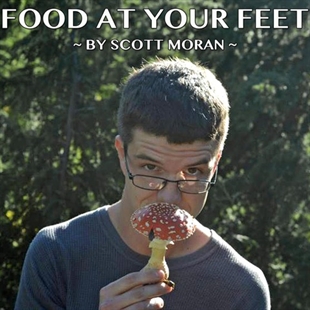
(SCOTT MORAN / iNFOnews.ca)
November 09, 2016 - 12:00 PM
OPINION
Going for a foray to the countryside to collect edible plants and mushrooms initially seems like an innocent activity, an easy escape from the busy world of economics and politics. If we stay within the boundaries everything is hunky dory. What is acceptable in one place may not be accepted in another, and if you cross a few lines while collecting some wild produce you could receive more than a few frowns.
There is a great contrast to the use and ownership of wild land in Canada and the US. Every country and culture has a unique relationship with their wild edibles and the land that provides. This relationship is shaped by the needs of the people and the politics of the land. Canada, the US, and the UK have three different attitudes toward the wilderness (wilderness being a very broad term when we compare the UK to Canada).
Some people in the world may think Canadians are a bit nuts for still having a monarchy in our government. The result of this political stance in relation to our forests is crown land. I have been collecting mushrooms on crown land for nine weeks straight to make a living. Spending time out in the bush is something that nearly every person in BC is familiar with. Camping, fishing, hunting, burning pallets, shooting guns, drinking cheap beer, and whatever else you might do up in those mountains; this is our escape. Thanks to the Queen for giving us permission to go and do whatever we feel like in the woods. It does seem silly to put it in those words, but the important thing is that we can do it.
In the UK, almost all land is private or park land. The exact details of what is and is not allowable will vary between England, Wales, Scotland, and Ireland, but there is an idea called The Right To Roam. Scotland is the most liberal, and it is clearly stated that a person may hike to the top of every peak in the country. If you have to cross private property to get there, nobody will stop you. It is not considered illegal trespassing to get from point A to B, it is a respected idea and you may roam where you like. There are also specific rules in each region that address wild harvesting from fields and forests. The rules change depending on whether you are harvesting leaves or uprooting plants, but wild harvesting is addressed in detail and not suppressed.
In the US, the majority of wild land is either owned by the government or a logging company. In Canada the logging companies are given rights to harvest from crown land. In exchange they have to build and maintain the entire network of dirt roads covering BC. This is the largest network of dirt roads in the world and it is how we access the wilderness for our beloved outdoor activities. If you drive down dirt roads in Washington or Oregon, they will have locked gates. If you find a way to enter these gated areas you might make some people very angry, and those angry people might have guns. This tight control of wild lands led to the recent Oregon standoff. If this kind of limited access was imposed on to our crown land, I'm sure that Canadians would be just as upset and possibly more so.
There are two American TV shows documenting the harvest of wild products. One is in the Eastern US, showing the ginseng harvest in the Appalachian mountains. The other takes place in the Pacific Northwest and documents the truffle harvest. These shows are loaded with a dramatic sense of risk and danger. This risk factor is a product of the history and politics of the land. Wild harvesting in Canada would be too peaceful to create a dramatic series.
There are examples of the entanglement of wild harvesting and politics in every part of the world. When we allow government to make a plant illegal, the door is opened to control our diet. I am comforted knowing that no matter how much our food supply is tampered with there is a patch of nourishing leafy watercress or wild spinach (lamb's quarter) within walking distance. When plants are made illegal we are on a slippery slope towards losing access to this important backup food supply.
In North Korea, Matsutake mushrooms are smuggled across minefields. In Tibet, there are some very important seasonal wild crops that provide Tibetans their only available economic independence. It is a peaceful form of rebellion for them to harvest and sell high-value wild foods and medicines.
The simple act of picking wild edibles and participating in our environment can change our surroundings. If we ignore our resources we could have our access taken away, without ever realizing what we lost.
— Scott Moran is a local forager discovering his own path to food freedom
We welcome your comments and opinions on our stories but play nice. We won't censor or delete comments unless they contain off-topic statements or links, unnecessary vulgarity, false facts, spam or obviously fake profiles. If you have any concerns about what you see in comments, email the editor.
News from © iNFOnews, 2016